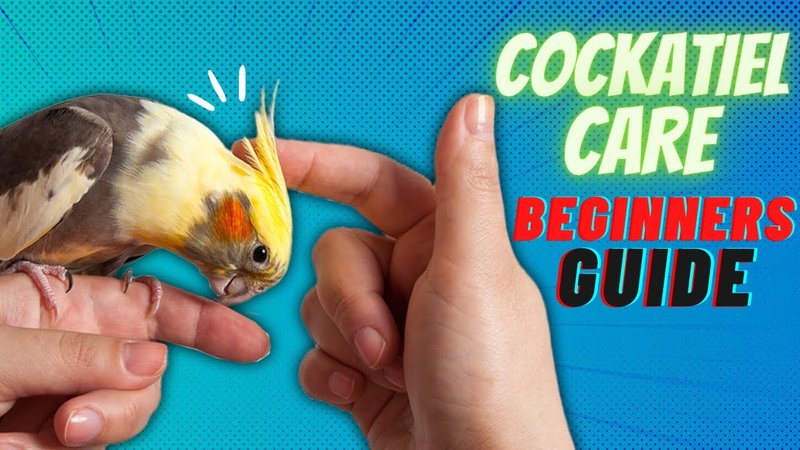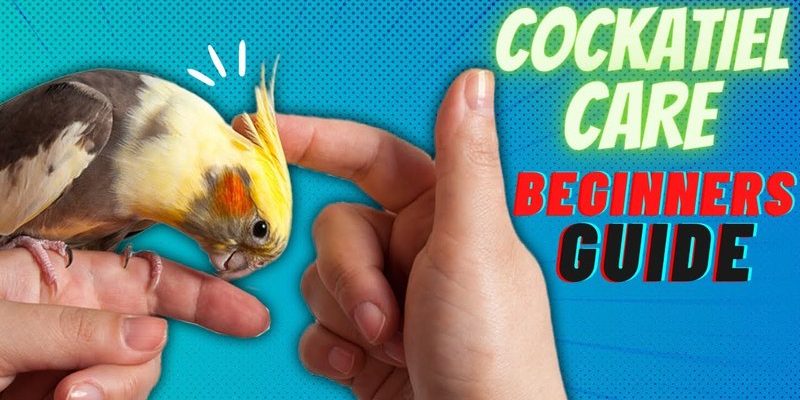
Imagine you’re sitting in a cozy café, discussing your plan to adopt a cockatiel. You might be wondering what it takes to keep one of these delightful birds happy and healthy. Well, think of your cockatiel as a little roommate who needs good food, a comfy home, and some quality time with you. This guide will help you navigate the essentials of cockatiel care so you can provide the best environment for your new avian friend.
Understanding Cockatiel Diet
Cockatiels, like most pets, thrive on a well-balanced diet. You might be surprised to learn that their diet can significantly affect their health and happiness. A cockatiel’s diet should include a mix of seeds, pellets, fresh fruits, and vegetables. Here’s the lowdown:
- Seeds: While seeds are often the staple food, they can be high in fat. Offer seeds sparingly to avoid obesity.
- Pellets: High-quality pellets are crucial. They provide essential nutrients and should make up the bulk of their diet.
- Fresh Fruits and Veggies: Treat your cockatiel to a variety of fruits and vegetables like leafy greens, carrots, and apples. Just make sure to wash them thoroughly.
It’s important to remember that some foods can be harmful to cockatiels. Avoid avocado, chocolate, and caffeine. Also, keep in mind that your cockatiel’s diet should change with the seasons. In warmer months, they might enjoy more fruits, while in winter, leafy greens can provide much-needed nutrients.
How to Introduce New Foods
Here’s the thing: cockatiels can be picky eaters. When introducing new foods, try the following:
1. Start Slow: Offer small amounts of new foods alongside their favorite seeds or pellets.
2. Be Patient: Cockatiels may not eat new foods right away, so give them time to explore.
3. Observe Their Reactions: Pay attention to which foods they nibble on; this can help you learn their preferences.
By diversifying their diet, you can help keep your cockatiel healthy and happy.
Choosing the Right Cage
Selecting the right cage is essential for your cockatiel’s wellbeing. Think of it as their personal apartment— it needs to be spacious, safe, and stimulating. First off, size matters. A cage should be at least 20 inches wide, 20 inches deep, and 24 inches high for one cockatiel.
- Bar Spacing: Make sure the bar spacing is about 3⁄4 inch apart. This prevents your bird from getting stuck or escaping.
- Materials: Choose a cage made of non-toxic materials. Avoid cages with lead or zinc coatings.
- Shape: A rectangular cage is generally better than a round one, as it offers more usable space.
Be sure to place the cage in a safe and quiet area of your home, away from direct sunlight and drafts. It’s also a good idea to provide perches at different heights for your cockatiel to climb and explore.
Organization Inside the Cage
Once you have the right cage, how do you set it up? Here’s what you can do to create a cozy, inviting space for your cockatiel:
1. Add Perches: Use a mix of natural wood and rope perches to encourage movement and exercise.
2. Include Toys: Interactive toys help keep your cockatiel mentally stimulated. Rotate toys regularly to keep things fresh.
3. Provide Food and Water: Place food and water dishes in easy-to-reach locations, and clean them daily.
Setting up a stimulating environment inside the cage helps your cockatiel feel secure and happy.
Meeting Social Needs
Cockatiels are social creatures, and they thrive on interaction. Leaving them alone for long periods can lead to boredom and even depression. Here’s how to keep their social needs in check:
- Daily Interaction: Spend time talking, whistling, or singing to your cockatiel daily. They love to communicate!
- Out-of-Cage Time: Allow supervised time outside the cage in a safe area. This lets them explore and bond with you.
- Consider a Companion: If you’re away often, consider getting another cockatiel. They can keep each other company, but ensure you have enough space.
You might be wondering how long to spend with them daily. Ideally, aim for at least 1-2 hours of interaction outside the cage. This can be during playtime or just having them close by while you do chores.
Signs of Emotional Wellbeing
Watching for signs of a happy, content cockatiel is important. Here are a few things to look for:
1. Vocalizations: Happy cockatiels love to chirp and whistle. If yours is singing, that’s a good sign!
2. Active Behavior: If they’re flapping around, climbing, or playing with toys, they’re likely feeling good.
3. Grooming: Regular preening indicates they’re comfortable and healthy.
If you notice changes in their behavior or vocalizations, they might be feeling stressed. Take some time to assess their environment and social needs.
Grooming and Health Care
Just like any pet, cockatiels need regular grooming to stay healthy. Although they’re pretty good at keeping themselves clean, they still need your help occasionally. Here’s what you should know:
- Feather Care: Regular baths are a must. Some cockatiels enjoy misting with water, while others prefer a shallow dish to splash around in.
- Beak and Nail Trimming: Keep an eye on their beak and nails. If they seem too long, you might need to trim them or visit a vet.
- Checkups: Schedule regular visits with an avian vet to catch any health issues early.
Here’s a tip: make bathing an enjoyable experience. If your cockatiel associates bath time with fun, they’ll be more likely to embrace it.
Common Health Issues
It’s important to know the signs of common health issues in cockatiels:
1. Feather Plucking: This can indicate stress or boredom.
2. Change in Appetite: If they stop eating, it could signal a problem.
3. Lethargy: A sleepy bird might not be okay. Look for any significant changes.
If you have concerns about your cockatiel’s health, don’t hesitate to contact a vet. You know your bird best!
Creating a Happy Environment
The ultimate goal of cockatiel care is to create a happy, healthy environment. This goes beyond diet and cage setup. Here are a few ideas to enhance their life:
- Provide Variety: Change up their toys, food, and perches to keep things interesting.
- Limit Stress: Keep their environment calm. Loud noises and sudden changes can be stressful for them.
- Socialize with Others: Invite family members or friends to interact with your cockatiel. It helps them become well-socialized.
By paying attention to their needs, you can create a nurturing atmosphere that makes your cockatiel feel right at home.
In conclusion, taking care of a cockatiel can be a rewarding journey filled with joy and companionship. By providing a varied diet, a comfortable cage, and plenty of love and attention, you’ll have a happy and healthy bird. Remember, just like any other pet, cockatiels thrive with understanding and care. With a little patience and effort, you’ll create a wonderful life for your feathered friend. Enjoy the experience!

